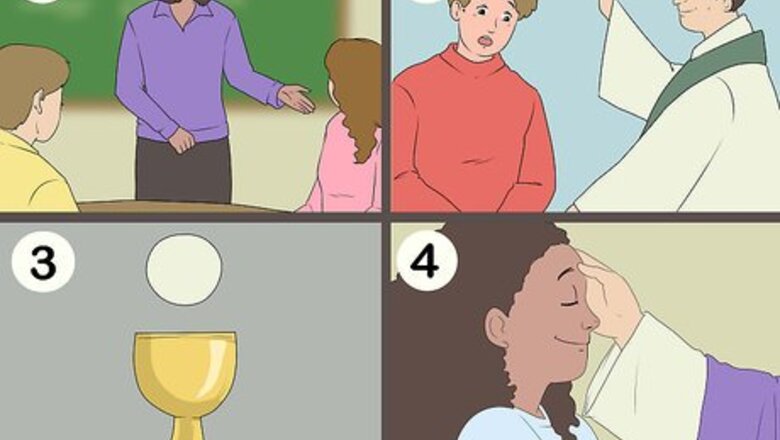
views
Qualifying for Communion
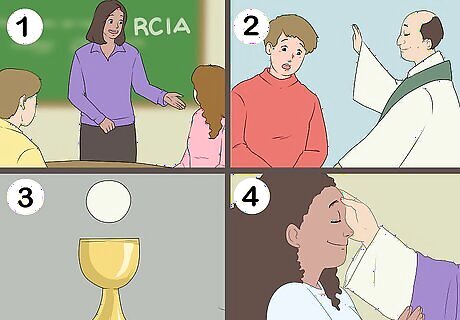
Become Catholic if you are not already. You must be of the Catholic faith to take Communion. Baptized children will be prepared to receive Sacraments in their regular classes, but if you are an adult you will most likely participate in a process called RCIA (Rite of Christian Initiation for Adults), learning what the Catholic Church teaches, and preparing you for Reconciliation, first Communion, and Confirmation. If you were Baptized in another Christian denomination you will make what is called a "Profession of Faith," to convert to Catholicism. This RCIA Process is the way in which you are prepared to be formally received by the Church; this is necessary before you can take Communion.

Accept Communion in a state of grace. The Eucharist may not be received while a person has mortal sin in their soul. If you have committed a mortal sin (a major sin which has seriously damaged your relationship with God and fulfills the three requirements of full knowledge of the sins’ grave nature, complete and unhindered consent to commit the sin, and grave matter.), you must go to Reconciliation and repent before receiving Communion. To receive communion knowingly in a state of mortal sin constitutes the sin of sacrilege.

Believe in the doctrine of transubstantiation. You must believe in transubstantiation, which means that the bread and wine are actually transformed into the body, blood, soul, and divinity of Christ. The offerings only appear as bread and wine, but are believed to actually be parts of Christ himself.
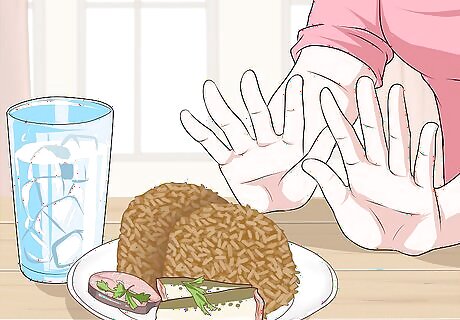
Participate in the Eucharistic fast. This means you cannot eat or drink anything for at least one hour before taking Communion. Water and medicine are excluded from the fast. Those who are elderly or ill can be excused from fasting, with the priest's permission.
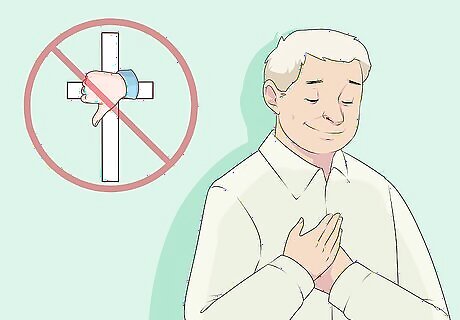
Ensure you are not under ecclesiastic censure. Those who are under ecclesiastic censure, meaning they have been excommunicated from the church or continually commit grave sins, cannot receive Communion.
Receiving Communion

Go to Mass. You will take Communion during Mass. Prepare yourself mentally during the Consecration of the Eucharist (when the host is changed into the body and blood of Christ) to participate in Communion. You can do this by giving your thanks, appreciation, and reverence to Jesus Christ through prayer.
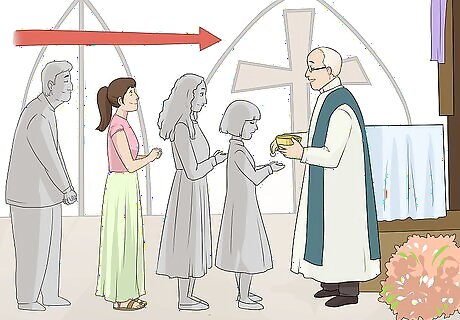
Approach the altar. The priests and altar servers will prepare to give Communion by taking their customary places. Wait for the usher to guide your row to walk up. When leaving the pew there is no need to genuflect (to kneel and cross oneself). Wait in line and do not skip people.

Receive the host. Depending on the church and your personal preference, you can either have the host fed to you or handed to you. In the Traditional Rite, the host is fed to you. Open your mouth and extend your tongue so that the host does not fall. The host will be placed on your tongue. Close your mouth and allow the host to dissolve on your tongue while thinking of the sacrifice made. If you wish to have the host handed to you, hold out your hands, left on top of right. Do not take the host from the priest, but rather allow them to place it in your hand. When you approach the priest or Extraordinary Minister, he/she will proclaim "the Body of Christ,". You proclaim your faith, both in word and in a gesture: as you say "Amen." (meaning I believe it!) you also bow as a way of showing your respect and faith.

Receive the Precious Blood. After receiving the host, you may choose to receive the Blood of Christ. Take a small drink from the chalice that is offered to you. The person offering the cup will say “the Blood of Christ,” and you should respond (as above) with a bow and a proclamation of your faith: "Amen." The lip of the chalice is wiped off after each member receives the blood as a way to limit germs, but if you know you are contagious, refrain from receiving from the Cup.
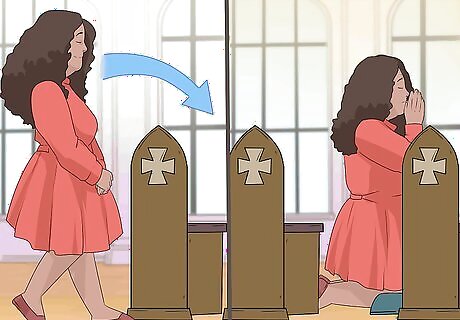
Walk back to your seat and kneel or stand (depending on the custom in your parish). This is a time to reflect and thank Jesus for coming to you in the Holy Eucharist. Return to your pew and pray, until the priest is finished offering the Blessed Sacrament. Follow the lead of more established church members if you are unsure what to do.




















Comments
0 comment